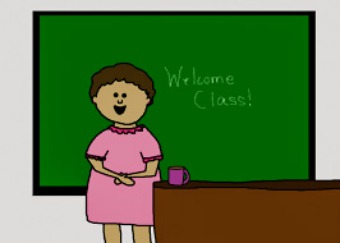Teaching is perhaps the noblest of all professions. Whatever your career is, there are teachers that educate everyone about all the essentials to help us function at our best in whatever job we land after graduating. They’re the ones who teach us what we know of from an early age (aside from our parents) and help us better understand the various complexities of life. But not everyone is born to teach, it takes a real passion for teaching and the genuine desire to impart your knowledge to young minds hungry for new knowledge and skills.
 You are perhaps wondering then what it takes to become a good teacher (if not the best)? And whether we like to admit it or not, teachers are instrumental in a student’s success or failure. But let’s face it that teachers alone aren’t the only ones who contribute to the child’s learning. The school itself, the rest of the faculty, the instructional materials, and the rest of the things that you can see within the four corners of the classroom and the school all influence a child’s education. But let us not ignore the fact either that teachers are at forefront of education and that they facilitate all aspect of a student’s learning from learning their ABCs until their post-graduate studies.
You are perhaps wondering then what it takes to become a good teacher (if not the best)? And whether we like to admit it or not, teachers are instrumental in a student’s success or failure. But let’s face it that teachers alone aren’t the only ones who contribute to the child’s learning. The school itself, the rest of the faculty, the instructional materials, and the rest of the things that you can see within the four corners of the classroom and the school all influence a child’s education. But let us not ignore the fact either that teachers are at forefront of education and that they facilitate all aspect of a student’s learning from learning their ABCs until their post-graduate studies.
The key to successful education is to attract good teachers. We can try to do so by raising teachers’ salaries (as commonly advocated). But this strategy also seems to fail, partly because higher incomes go to both good teachers and bad, giving bad teachers as much incentive as good ones to become and remain teachers.
If not larger salaries, how about more rigorous screening? Every state requires that teachers be certified. Why not, then, just set higher certification standards for teachers so that we get better ones? This too sounds plainly right: just as we require doctors and lawyers to undergo specialized training and to pass examinations to qualify to practice, shouldn’t we make teachers do the same?
No. On the contrary. For two reasons. First, more stringent certification standards do little to keep out bad teachers. Second, such standards deter excellent prospects from entering teaching.
Your personal and economic success relies greatly on a good and quality education. That is the reality of life. The US also gives importance to education since many American students now are performing poorly than students in other progressive countries on various tests. The teachers themselves lack the training, skills, and qualities of becoming a good and effective teacher. Many teachers actually prove they have mastery of the subjects they teach but lacking in their ability to aid and inspire students to learn whatever they need to succeed in later life and not simply pass the subject.
For all the noise, infighting and litigation over teacher evaluations and tenure, California currently has no definition for what a good teacher — or a bad one — looks like.
As one way to measure equity, the federal Every Student Succeeds Act requires that states report on whether disadvantaged students have a higher proportion of ineffective, out-of-field and inexperienced teachers than do their peers. But to report on that metric, the state needs to define, concretely, what an “ineffective” teacher looks like.
In materials prepared for Wednesday’s meeting, the State Board of Education has proposed defining ineffective teachers as those who are improperly assigned or don’t have full credentials. This language that mirrors the Local Control Funding Formula law, as well as a proposal from the California Teachers Assn. union. The definition would not include any measure of student performance, an omission that is drawing criticism from some.
It is quite alarming how the state of American education is deteriorating as modern life advances. Claims of under-qualified and ineffective teachers are everywhere and it is the students that eventually lose as they miss out on a chance to learn from the best. While the curriculum and the methodologies matter greatly, it is still the teacher’s delivery of the lessons that make a difference on how a student learn what they are supposed to know.
Making learning a fun activity helps a lot as students grasp classes better if they enjoy and learn at the same time. There is still room for improvement for teachers and they should not rest in enhancing what they already know because the times are changing and they must update themselves on what works in today’s world without sacrificing age-old principles that have shaped the world of education for the longest time.

To elevate from good to great teacher you should consider teaching outside your country for a year or two. This will not only add width to your teaching experience but it’ll also project you as an authority when it comes to interaction with students as well as their parents.